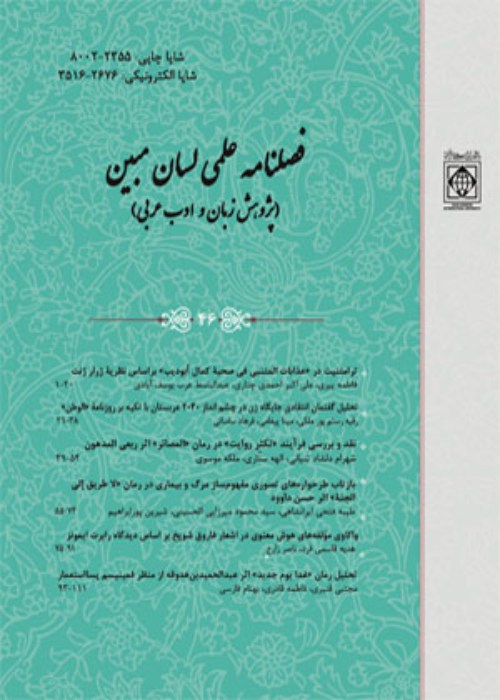Society Linguistic Implications for Second Generation Immigrants (Case Study of the Novel”Tahta Samᾱe Kopenhagen “ For Hura Al-Nadavi
One of the important aspects of migration, which has been considered by various researchers, including the language community, since the second half of the twentieth century, especially in the recent decade, is the linguistic consequences of migration. The second generation of immigrants, who were born in exile or immigrated with their parents as children, are more prone to mother-tongue encounters.Novel “ Tahta Samae Kopenhagen” Contemporary Iraqi novelist Hura al-Nadavi narrates a group of second-generation Iraqi immigrants in Denmark who, as a result of their resemblance to the host society, the language and culture of their homeland, have faded has also led to some sort of identity confusion for them.This article intends to analyze the linguistic consequences of migration in the second generation of immigrants in this novel in a descriptive-analytical way and relying on the literature of language's society.The results indicate that the dominant bilingualism, borrowing of vocabulary and phonetics, language change and in some cases language preservation and language adaptation are the most important consequences of second generation. It should be noted that the role of parents in the occurrence of these consequences is eye-catching.
- حق عضویت دریافتی صرف حمایت از نشریات عضو و نگهداری، تکمیل و توسعه مگیران میشود.
- پرداخت حق اشتراک و دانلود مقالات اجازه بازنشر آن در سایر رسانههای چاپی و دیجیتال را به کاربر نمیدهد.



